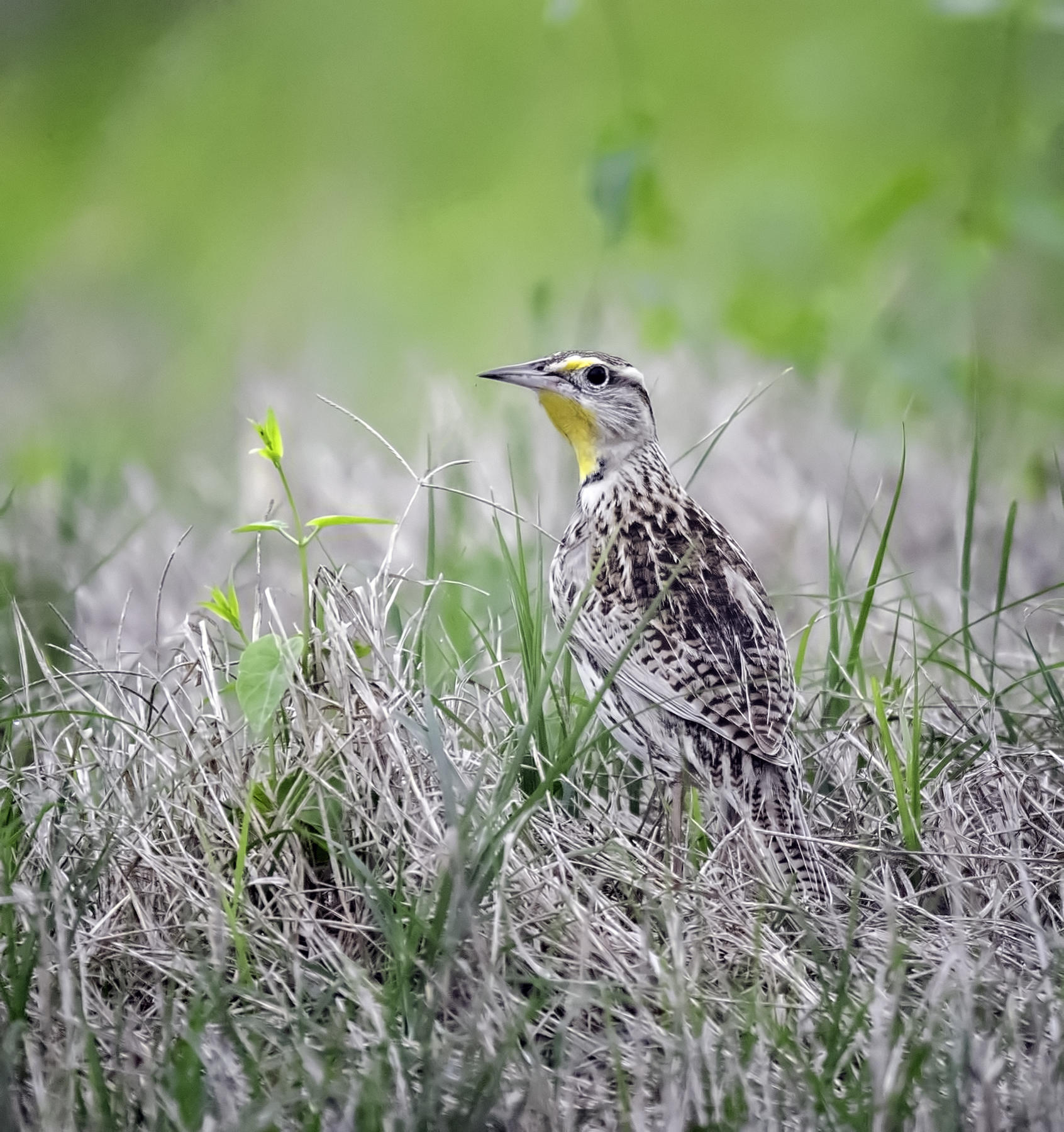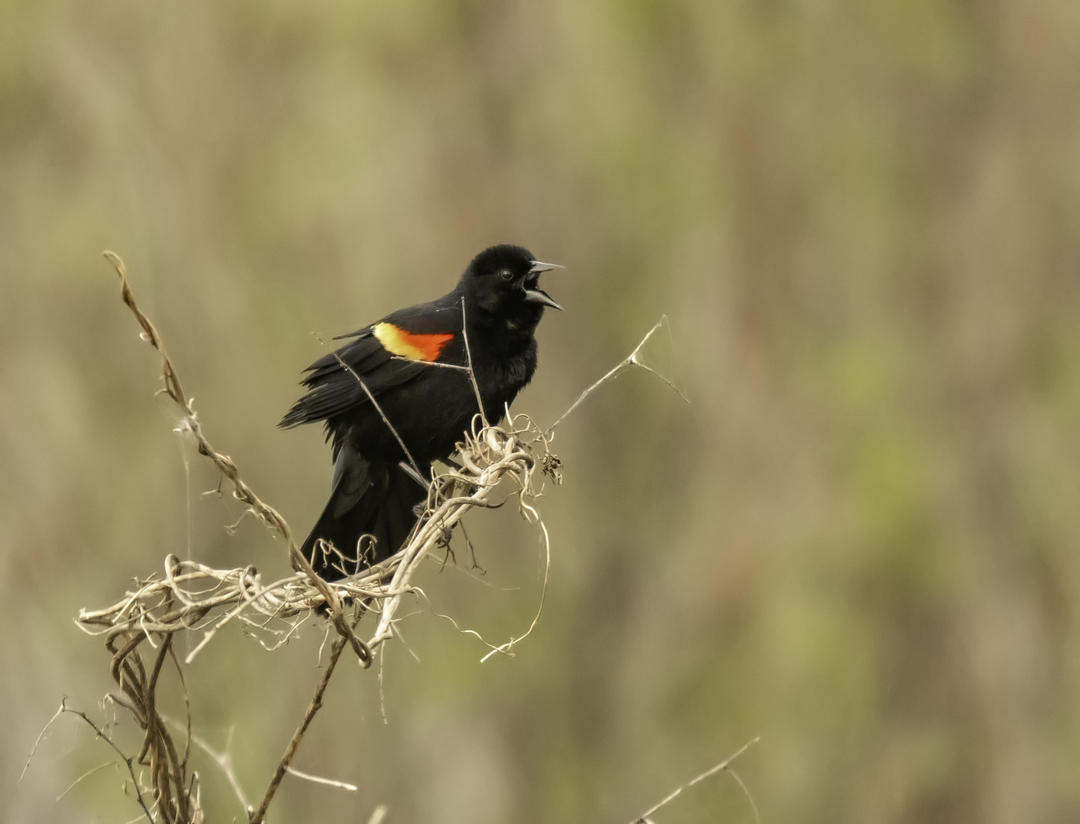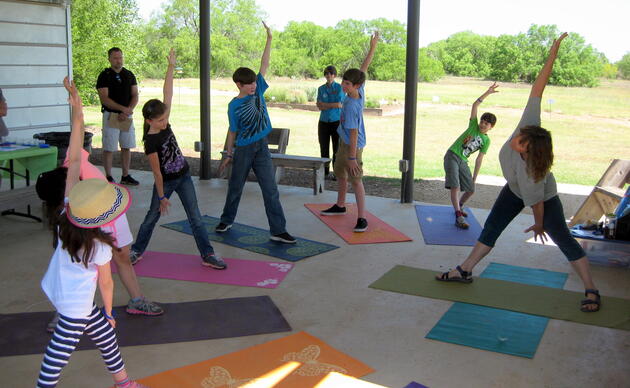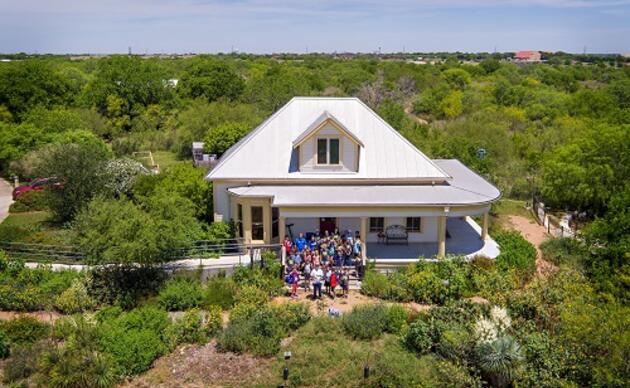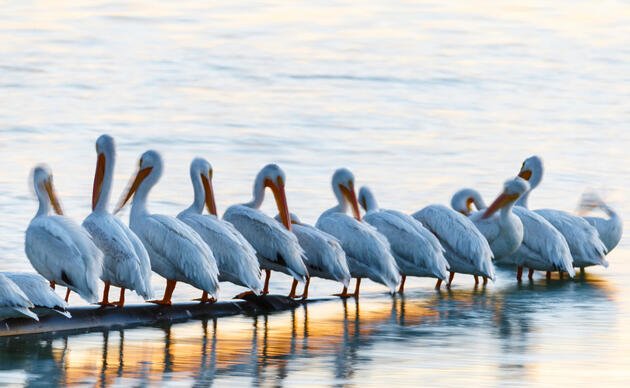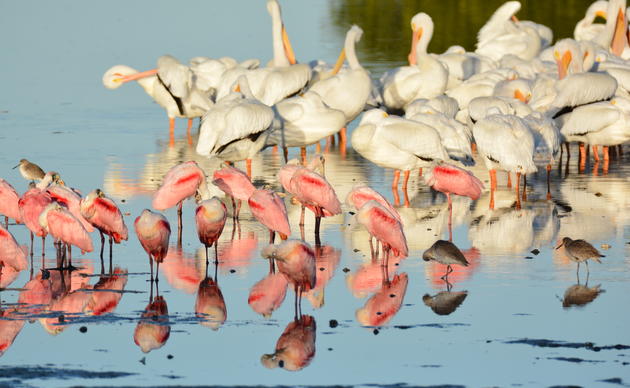Grassland Restoration
Mitchell Lake Audubon Center is currently restoring approximately 20 acres of pasture land for birds and other wildlife use. Northern Bobwhite and Wild Turkey are still active on property, but encroaching brush and non-native grass species are not conducive to supporting the populations long term as the climate changes. The area has not seen any grazing or grassland management in recent memory with the exception of a burn on an adjacent parcel of land in 2006. The first prescribed burn since 2006 took place in December 2019, and the COVID-19 pandemic shut down the project.
Since our initial management effort in 2006, there has been an increase in the number of neighborhoods and new development in proximity to the center. This traditionally restricted our ability to conduct prescribed burns as a means to control brush encroachment and keep our grassland parcels free of woody vegetation. As part of our new grassland management program, Audubon will work with multiple partners to conduct a prescribed burn, reseeding of native grasses, and ultimately, demonstrate adaptive multi-paddock rotational grazing as a long-term land management tool.
Over five years ago, in an effort to reverse grassland bird decline, Audubon began to explore an ambitious new conservation approach across the central flyway, seeking to create market-based incentives for bird conservation on rangelands by rewarding producers that adopt bird-friendly management practices on their ranches - Conservation Ranching. The focus of these practices is adaptive multi-paddock (AMP) grazing. Long-term studies have shown that AMP grazing improves not only conditions above ground but in our soil as well. Soil organic matter (OM) and cation exchange capacity has been shown to increase up to 1% annually, and it increased soil water infiltration rates from less than 0.5 inches per hour to more than 8 inches per hour within a 5-year period. Bird and other wildlife populations greatly benefit from AMP by diversifying the plant communities.
Mitchell Lake is an ideal site to serve as demonstration area to show the benefits of grassland restoration and rotational grazing systems. As Audubon helps ranches fully implement conservation practices, reduced pollutant and bacteria runoff into streams and rivers will enhance ecosystem benefits.
As of August 1, 2022, we are continuing our grassland restoration in partnership with Native American Seed through manual removal and best managment practices, beginning with 12 acres. All questions about this project should be directed to Center Director Sara Beesley.
How you can help, right now
Become a Member
Enjoy free admission, discounts in our nature store, and free and discounted programs.

